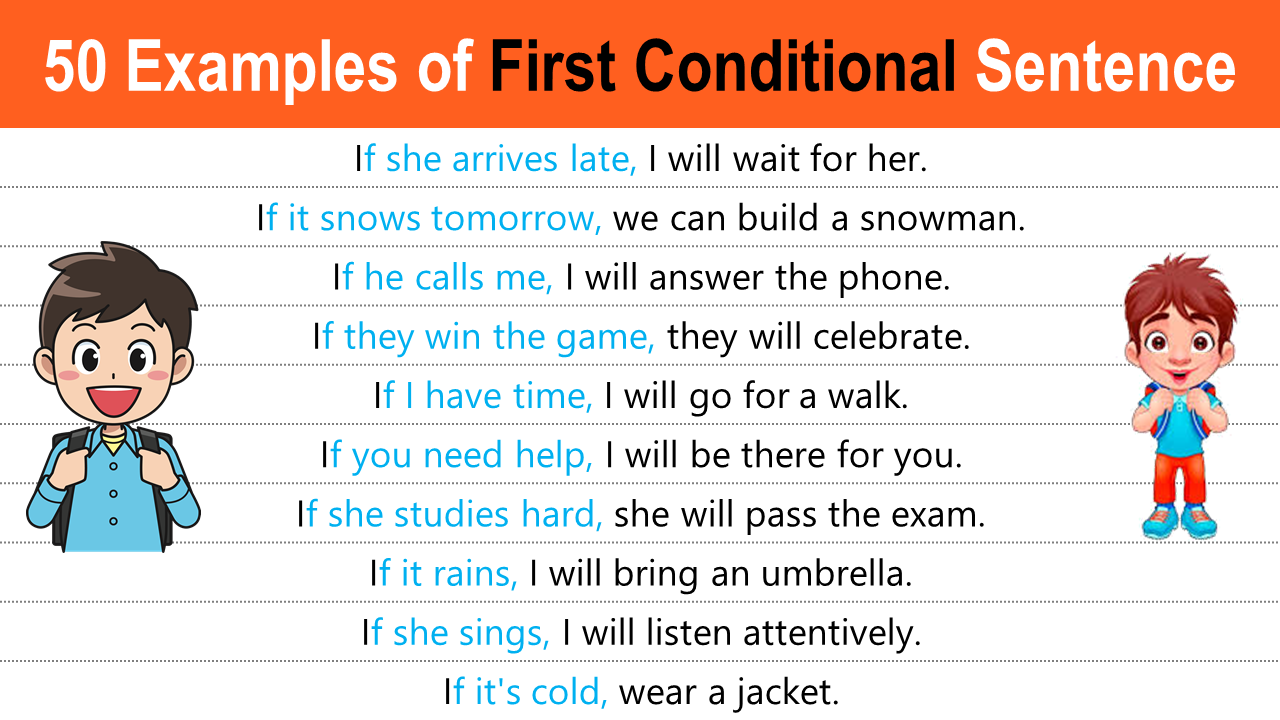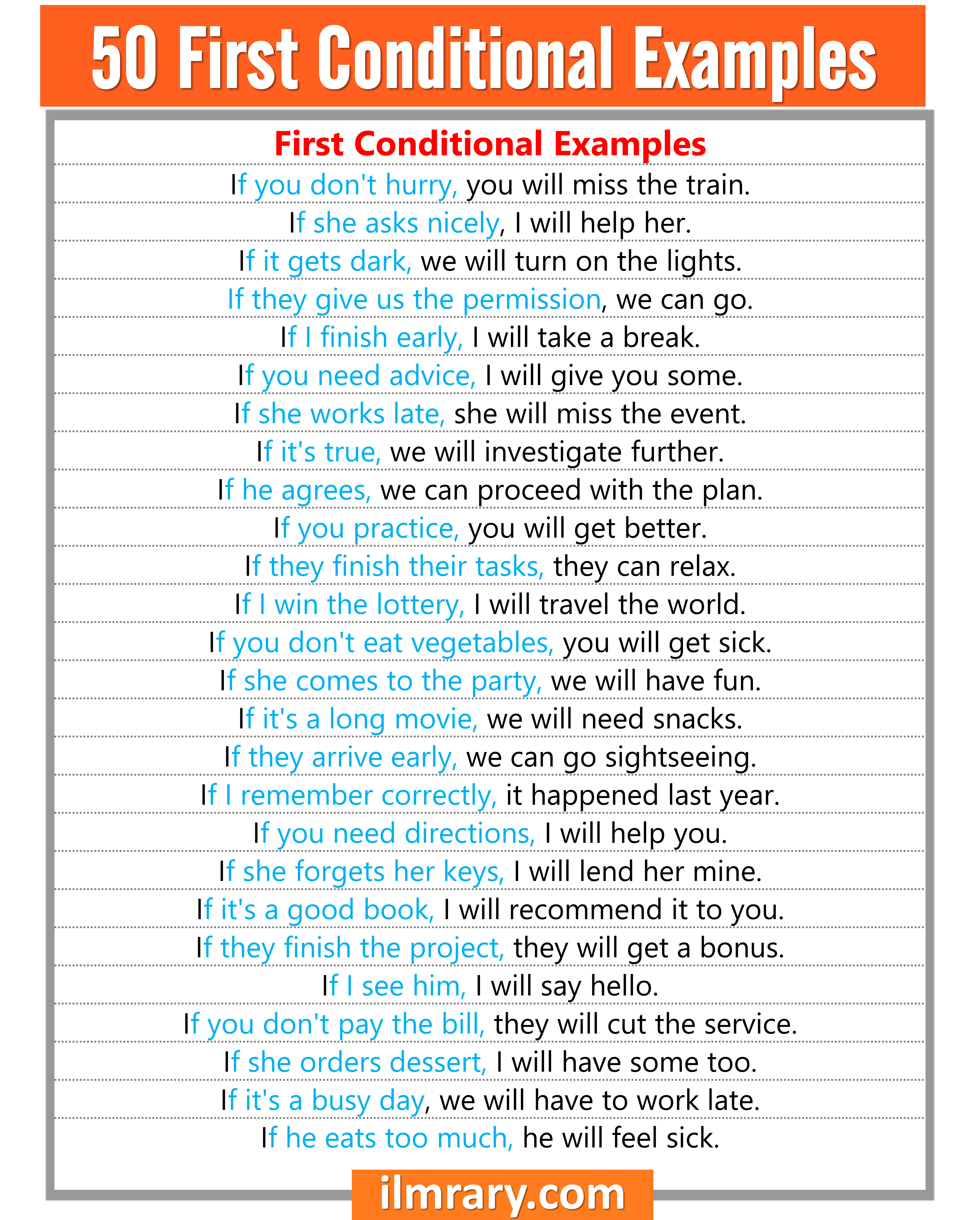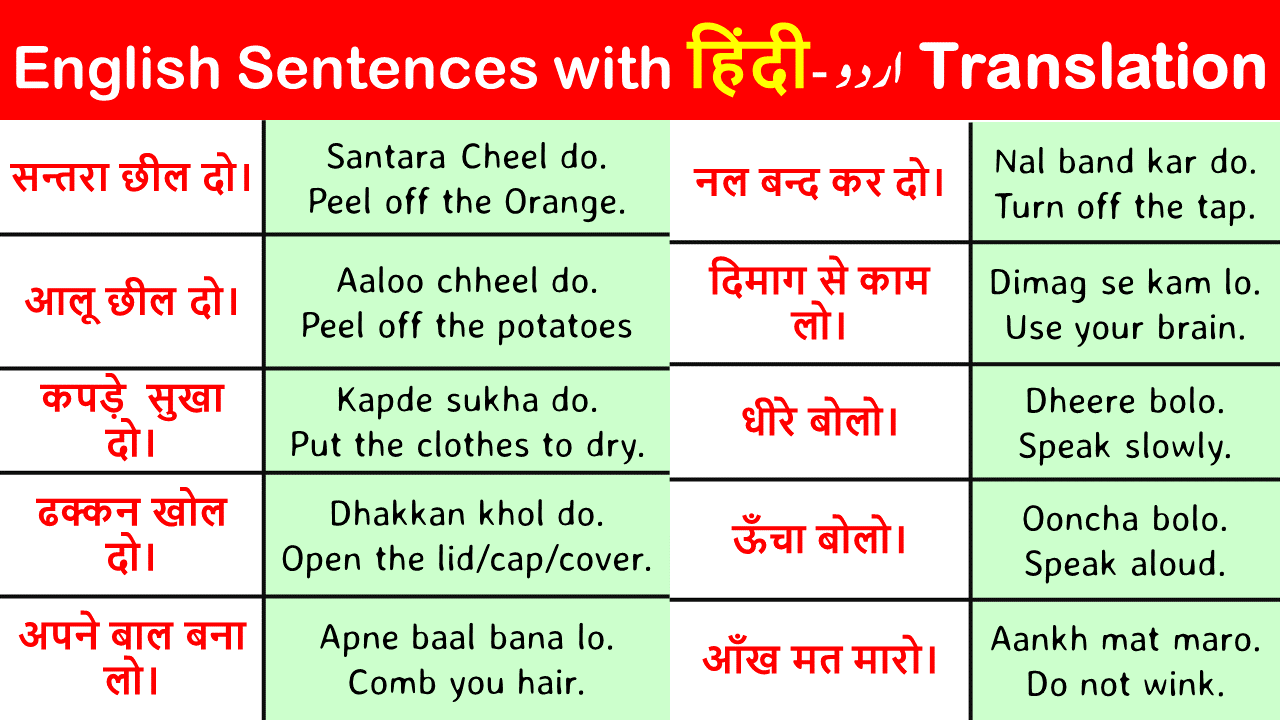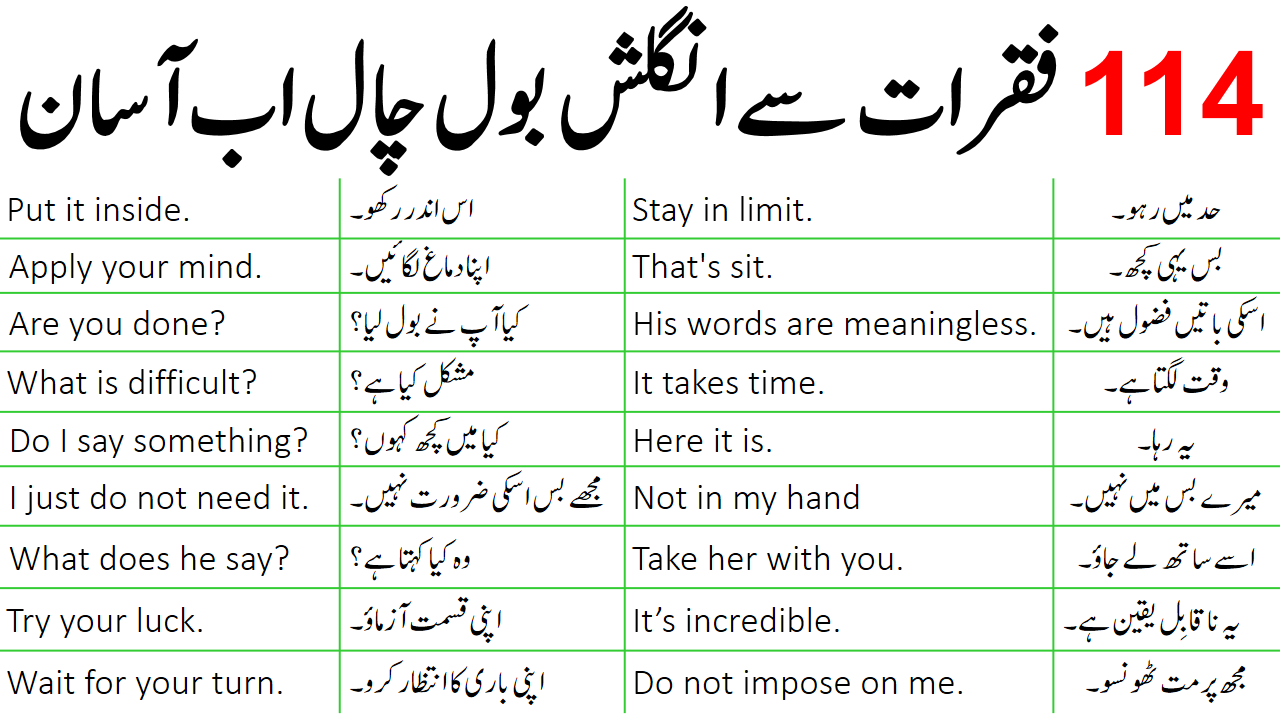First conditional sentences are important in English because they show the relationship between a condition and its result. They help us talk about what might happen in the future if something specific happens. These sentences are useful for making plans, giving advice, and predicting outcomes.
Learning how to use first conditional sentences will help you communicate more clearly and express your ideas and intentions in everyday situations.
Contents
What Are First Conditional Sentences?
First conditional sentences are used to talk about possible situations in the future. They describe a condition (if something happens) and a result (what will happen if the condition is true). The structure is usually if + present simple, will + base verb.
- If it rains, I will stay home.
- If you study hard, you will pass the test.
- If she calls, I will answer.
First Conditional Sentences with Meaning
| Conditional Sentence | Meaning |
|---|---|
| If it rains, I will take an umbrella. | I will take an umbrella if it rains. |
| If she studies hard, she will pass the exam. | She will pass the exam if she studies hard. |
| If you finish your work early, we can go for a walk. | We can go for a walk if you finish your work early. |
| If they arrive late, we will start without them. | We will start without them if they arrive late. |
| If he eats too much, he will feel sick. | He will feel sick if he eats too much. |
| If I see her, I will invite her to the party. | I will invite her to the party if I see her. |
| If you don’t hurry, you will miss the bus. | You will miss the bus if you don’t hurry. |
| If they practice regularly, they will improve their skills. | They will improve their skills if they practice regularly. |
| If she calls me, I will answer the phone. | I will answer the phone if she calls me. |
| If it snows tomorrow, school will be canceled. | School will be canceled if it snows tomorrow. |
| If he works hard, he will get a promotion. | He will get a promotion if he works hard. |
| If we save money, we can go on a vacation. | We can go on a vacation if we save money. |
| If she studies well, she will pass the test. | She will pass the test if she studies well. |
| If it’s hot, we can go swimming. | We can go swimming if it’s hot. |
| If they win the game, they will celebrate. | They will celebrate if they win the game. |
| If I have time, I will visit my grandparents. | I will visit my grandparents if I have time. |
| If you need help, I will be there for you. | I will be there for you if you need help. |
| If she calls, tell her I’m not available. | Tell her I’m not available if she calls. |
| If it gets dark, we will turn on the lights. | We will turn on the lights if it gets dark. |
| If he apologizes, she will forgive him. | She will forgive him if he apologizes. |
| If you finish all your vegetables, you can have dessert. | You can have dessert if you finish all your vegetables. |
| If they arrive on time, we can start the meeting. | We can start the meeting if they arrive on time. |
| If she studies French, she can communicate with locals in Paris. | She can communicate with locals in Paris if she studies French. |
| If it’s cold, wear a jacket. | Wear a jacket if it’s cold. |
| If they work together, they will finish the project on time. | They will finish the project on time if they work together. |
| If I find the book, I will lend it to you. | I will lend it to you if I find the book. |
| If you water the plants, they will grow healthy. | They will grow healthy if you water the plants. |
| If she wins the competition, she will be very happy. | She will be very happy if she wins the competition. |
| If it’s sunny tomorrow, we can have a picnic. | We can have a picnic if it’s sunny tomorrow. |
| If he practices the guitar, he will become a skilled musician. | He will become a skilled musician if he practices the guitar. |
| If you study, you will pass the test. | You will pass the test if you study. |
| If they follow the instructions, they will succeed. | They will succeed if they follow the instructions. |
| If she likes the movie, she will recommend it to her friends. | She will recommend it to her friends if she likes the movie. |
| If it’s a clear night, we can see the stars. | We can see the stars if it’s a clear night. |
| If he saves money, he will be able to buy a car. | He will be able to buy a car if he saves money. |
| If you eat too much junk food, you will gain weight. | You will gain weight if you eat too much junk food. |
| If they miss the train, they will have to wait for the next one. | They will have to wait for the next one if they miss the train. |
| If I get the job, I will move to a new city. | I will move to a new city if I get the job. |
| If you don’t study, you will fail the exam. | You will fail the exam if you don’t study. |
| If she practices every day, she will become a better dancer. | She will become a better dancer if she practices every day. |
| If it snows heavily, schools might close. | Schools might close if it snows heavily. |
| If he exercises regularly, he will stay fit and healthy. | He will stay fit and healthy if he exercises regularly. |
| If you take a taxi, you will reach the airport quickly. | You will reach the airport quickly if you take a taxi. |
| If they work late, they will miss the movie. | They will miss the movie if they work late. |
| If I save enough money, I will buy a new laptop. | I will buy a new laptop if I save enough money. |
| If you don’t pay the bill, they will cut off the electricity. | They will cut off the electricity if you don’t pay the bill. |
| If she arrives early, she will have time to prepare. | She will have time to prepare if she arrives early. |
| If it’s a good movie, we can watch it together. | We can watch it together if it’s a good movie. |
| If he listens carefully, he will understand the instructions. | He will understand the instructions if he listens carefully. |
| If you don’t study, you won’t pass the test. | You won’t pass the test if you don’t study. |
You May also Like







